Yesterday we broached the topic of what it means to be a Warlock, and yes, I am spending thousands of words arguing with a tweet, don’t at me, dad. But I can’t just leave it at what the Warlock is without talking about the very important characteristics of what the Paladin isn’t.
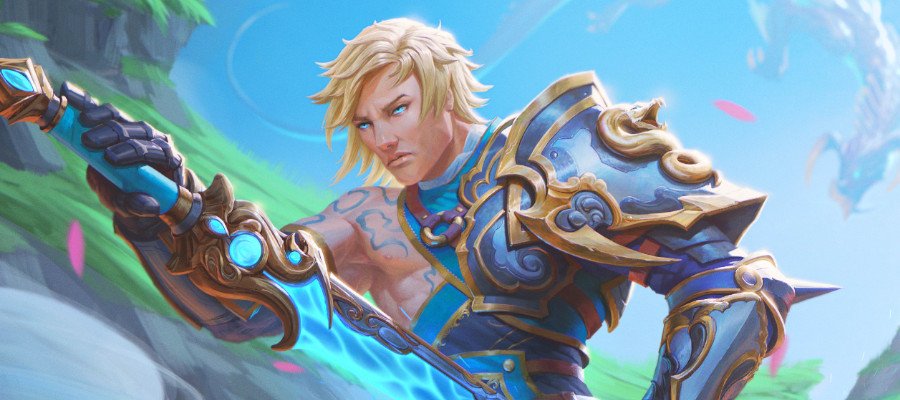
Because there’s a big fat misconception about what Paladins are, implied by how people relate to flavour text.
The power source of the Paladin is divine. In 4e D&D, Divine magic is described as being:
Divine magic comes from the gods. The gods grant power to their devotees, which clerics and paladins, for example, access through prayers and litanies.
This immediately hits a wall when you find that you can have Divine characters that don’t worship gods, which implies that there may be divine magic that comes from gods, but not all of it does. Or if it does, that divine magic may flow from a source that’s an explicit non-agent; dead gods, or the magic that the gods represent, unfettered by an identity.
Ostensibly, there’s this idea in the landscape of D&D of the ‘fallen Paladin’ that at some point you can break the rules of your god and lose access to your powers. This is an idea that some editions of D&D went out of their way to promote, in ways I’ve mentioned before. But we’re not talking about that — we’re talking about the mechanics of 4th edition.
In 4e D&D there is no mechanism for a Paladin to fall or fail. By the letter of the rules, there’s no way that a Paladin as a character can do anything that results in the loss of their powers. This is a good idea as a game designer because one thing 4e is built around is the idea of consistent, reliable player power, which means that challenges can be designed so that the majority of the players can contribute to the majority of situations, without the feeling that the wrong moral choice can strip a player of all their powers at an inopportune moment.
But what does this imply?
Gods can make Paladins; that’s stated. Gods can’t unmake Paladins; that’s also stated. The result implies that a Paladin is a thing a God can make and that’s kind of it. The Paladin’s ability to access divine magic after that point is done, they can do it, and that’s all there is to it. How much or how strong, they’re functions of skill or experience or emotional depth or belief or ideals or whatever you use to represent growing in power as a Paladin. The Paladin is not a creature cultivated and controlled and built piece by piece: They are connected to a divine wellspring and then unleashed.
This is, I think, why Paladins are armoured, why they are capable of wielding weapons, why they are able to make choices about how they relate to the world. They’re not protected only by magic from on high. They have weapons and armour because those are real and material things, which the Paladin needs to relate to, and they keep working even if magic isn’t happening. The Paladin is created such that they are a self-protecting investment.
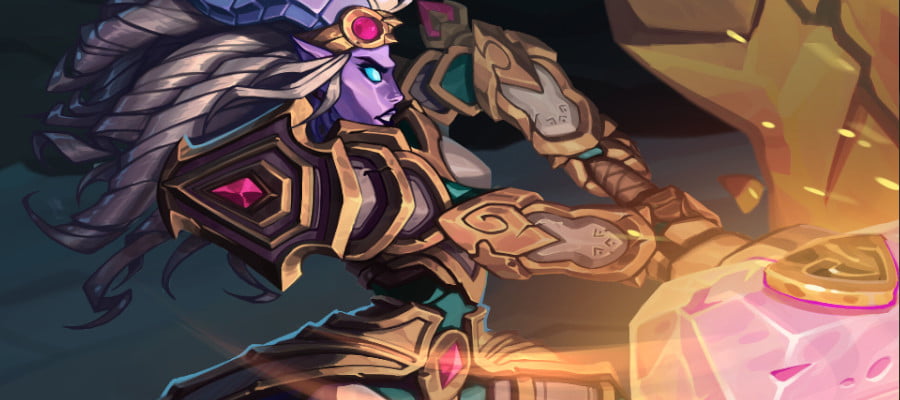
If this is true, though (and it is, damnit, come with me on this journey), and that if a Paladin is a bell that the divine entity responsible cannot un-ring, the question then becomes why the hell would you ever do that? A cleric needs to regularly return to you for power; they have a time of day when they pray to you for their magic, you can always shut them off there. What in the world can a Paladin offer you that a Cleric doesn’t that doesn’t also bring with it the potential danger of a Paladin going off and disagreeing with you?
It’s a dangerous proposition, and that means a god needs a good reason to make Paladins. This is also why different gods have different relationships to their paladins!
First of all, there’s the ideologically pure reason to have Paladins. If you’re a God and believe in your absolute rightness of your ideals, then it’s entirely sensible and congruent with your expectations to give power to someone who agrees with you while you operate on the assumption that they will always agree with you, because, after all, you are right. This also works out well if you have a decent volume of Paladins. If most paladins stick to the ideology, then most Paladins see other Paladins sticking to the ideology and that helps to reinforce the idea of the Paladin being right. Sufficiently common Paladins make contrary Paladins easier to ignore, or even deny. You could have an entire ideological position that a Paladin that breaks ranks is a ‘fake’ or ‘anti’ Paladin.
This works for itself, but it’s also just something that you can see as an ethical position. Paladins of freedom and chaos, Paladins who have an ideology of the importance of order, Paladins who see giving or prosocial ideas as important are all going to more or less look alike in a way that’s at least aesthetically linked, which means it’s easier to see through the lens of that ideology. For the ideologically-controlled Paladin (snifff), then the ideology itself can serve to cover a variety of sins. A Paladin who protects a city, but breaks and runs off to protect a town, can still be seen as being a Paladin of cities, where their town is an example of a nascent city-in-waiting. If that same Paladin runs off to protect the wilds without any cities involved, that can then be seen as protecting a city at its furthest boundaries. That may sound like a shifty dodge but hey, let me tell you about ideology.
This might also play into how the the god chooses and describes their Paladins. You might select people who know the pain of oppression to help fight oppression. You might uplift the traumatised so that they can share their trauma. All that matters is how you tell the difference between ‘the wound is where the light comes in’ versus ‘the world only makes sense if you force it to.’
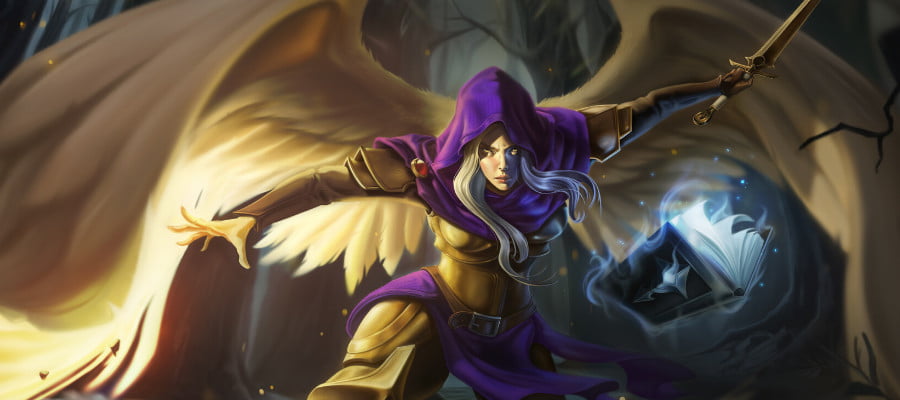
Next up, there’s the option of control through Enforcement. Look, any time a Paladin gets out of line you can just kill them. I mean they’re not the most powerful thing you have under your control, and anything can fall to enough numbers if you bring them to bear. This is definitely an approach for more structured powers. If your church can be meaningfully compared to cops, this is how you’re going to wind up keeping Paladins in line. This doesn’t even have to be the threat of violence, per se. Just make it so that Paladins have a reason to check back in, to regularly worship and engage with the community of the church gives you a social mechanism for enforcement.
This enforcement mechanism works great if again, you’re the kind of church you have with regular meetings, a community that can care or even pretend to care. This is a pretty mean sounding term, but it doesn’t have to be done in a controlling way, it doesn’t have to be negative. If you have a church that’s very prosocial and giving, having a lot of other people around the Paladin to encourage them to engage in the same way serves as an enforcement mechanism that isn’t cruel or manipulative. It’s still very much a ‘lawful’ way to approach things.
Another option for control is Heresy. Accept that some Paladins are going to slip the leash and then make a narrative about what that makes them. Tell people that it’s possible for evil to impersonate good (or whatever), tell your community that there’s an eternal punishment awaiting this sin, or that it’s possible to lose your identity and be consumed by some other thing that impersonates you. This is a lot like Enforcement, but the Paladin doesn’t need to be controlled there, but rather instead, the Paladin’s cohort can be inoculated from what it means to see a Paladin changing sides.
This means that once the Paladin starts doing things you would rather they not do, you can cut them off from social reassurance by the fear of Heresy. Now, if the Paladin’s behaviour, outside of your control, is focused on say, killing you, then this isn’t going to do a great job. But it might be useful if your problem is your Paladins keep slipping off to go do things they think are more important than pursuing your ends. Through the claim of Heresy you can keep that Paladin from converting more of your followers, and direct them to go continuing their aims elsewhere. This tactic probably works really well for immediate needs; you may give power to a Paladin in an emergency situation, have them do something, and then when they, empowered in this way, decide they don’t want to stay in your spaces under your control, go off on their own, you can control the story if the Paladin is frozen out of interacting with the community afterwards.
Another options is Anonimity. Just make someone a Paladin and don’t tell them it’s you. Don’t take credit. Don’t take responsibility. Are you waging an endless war against a type of large spider? Well, make someone who hates spiders a Paladin and let them just take care of one another. This is how deities that lack connected infrastructure are likely to work. A god of death doesn’t need to care too much about how a Paladin of death goes about the business of killing, so just let them get to work with it. After all, it’s known that Paladins do exist without a divine patron, so why do any of your Paladins need to think that they’re doing it for that reason?
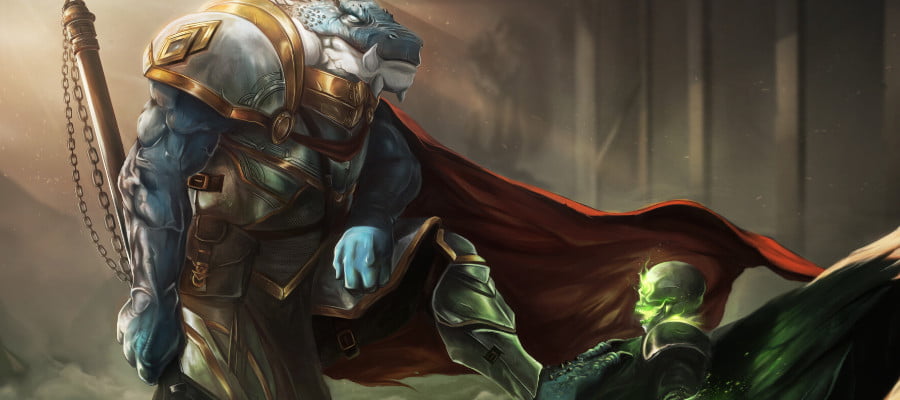
This does make them hard to coordinate and control, of course, so you probably don’t want to do it with a decently large number of them. This approach probably works best for Paladins who are separated and isolated and expected to do something meaningfully simple. If you imbue someone with a desire to fight tyranny and help the poor, that person will almost certainly never need guidance to find some kind of opportunity to do that.
Another less-common option is Sabotage. Ie, you create a Paladin with no intention of making them controllable. Pick an enemy, in one of their cities or their ranks, find someone who’s just the worst kind of dude or secretly a prick, and make them a Paladin, then peace out, leaving them to deal with what it means when someone in their number Who Sucks gets suddenly seen as being empowered by God.
Finally, another reason to make a Paladin, even if you can’t control them afterwards, is as a contingency. There are probably a bunch of Paladins, very powerful ones, trained and refined and given experience and all sorts of great psychological manipulation to make them really, really mad, who are contained by their own gods in inescapable tombs somewhere around the world. These immortal, angry, hateful Paladins who are ready to wreck shop are contained by their own gods, but the second that that god dies, they become free.
Which means everyone those Paladins hate have a good reason to never risk hurting that god.
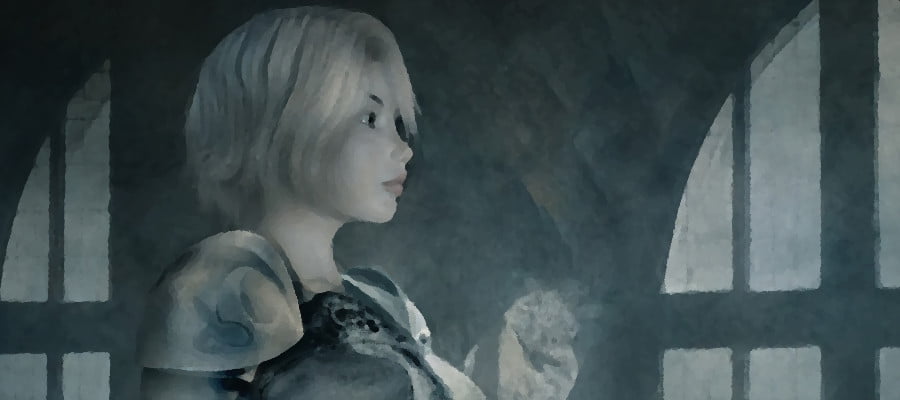
This is taking a tiny game rule detail, an absence that I’m sure lots of people went ‘oh, that’s probably an oversight’ and extrapolating it out into worldbuilding details. Details that I think are interesting and engaging, and get out past the protestant, puritan mindset that (say) Gygax had to bring to bear to the world. My idea is, in part, inspired by the Solars of Exalted, with the idea that sometimes, you make something powerful and you can’t control it and then you have to wonder why you did that.
But it’s not sugar daddies and employers. It’s not contracts versus indulgences. A Paladin does not have to be bound to a god, so why should a Paladin who’s bound to a God be required to be bound to them? It seems to me to be much more interesting to talk about how that divine agency relates to two of the most important and classical parts of deific mythological narratives: The capacity for gods to be total fuckups, and the capacity of cool humans to kill the shit out of evil.